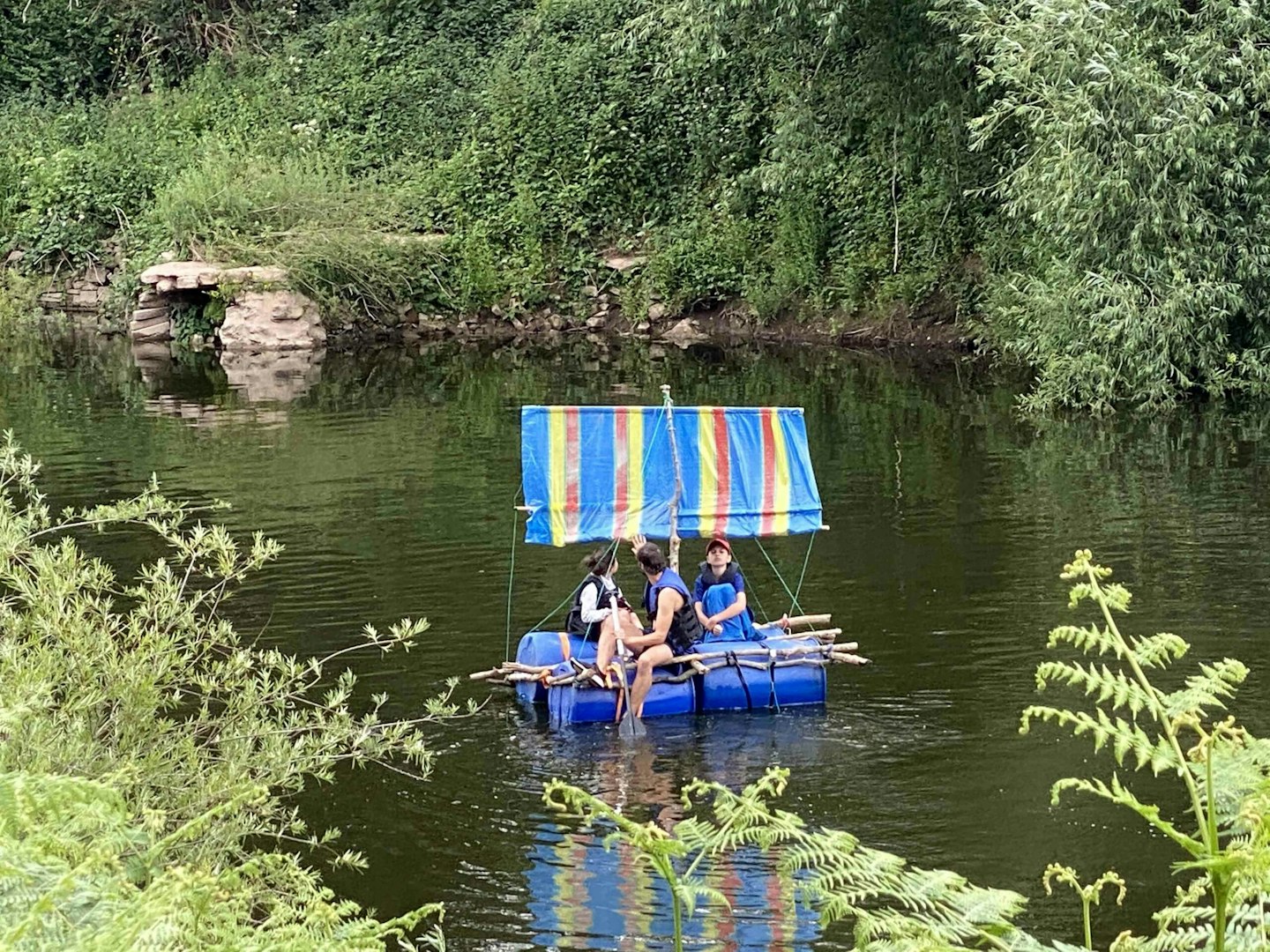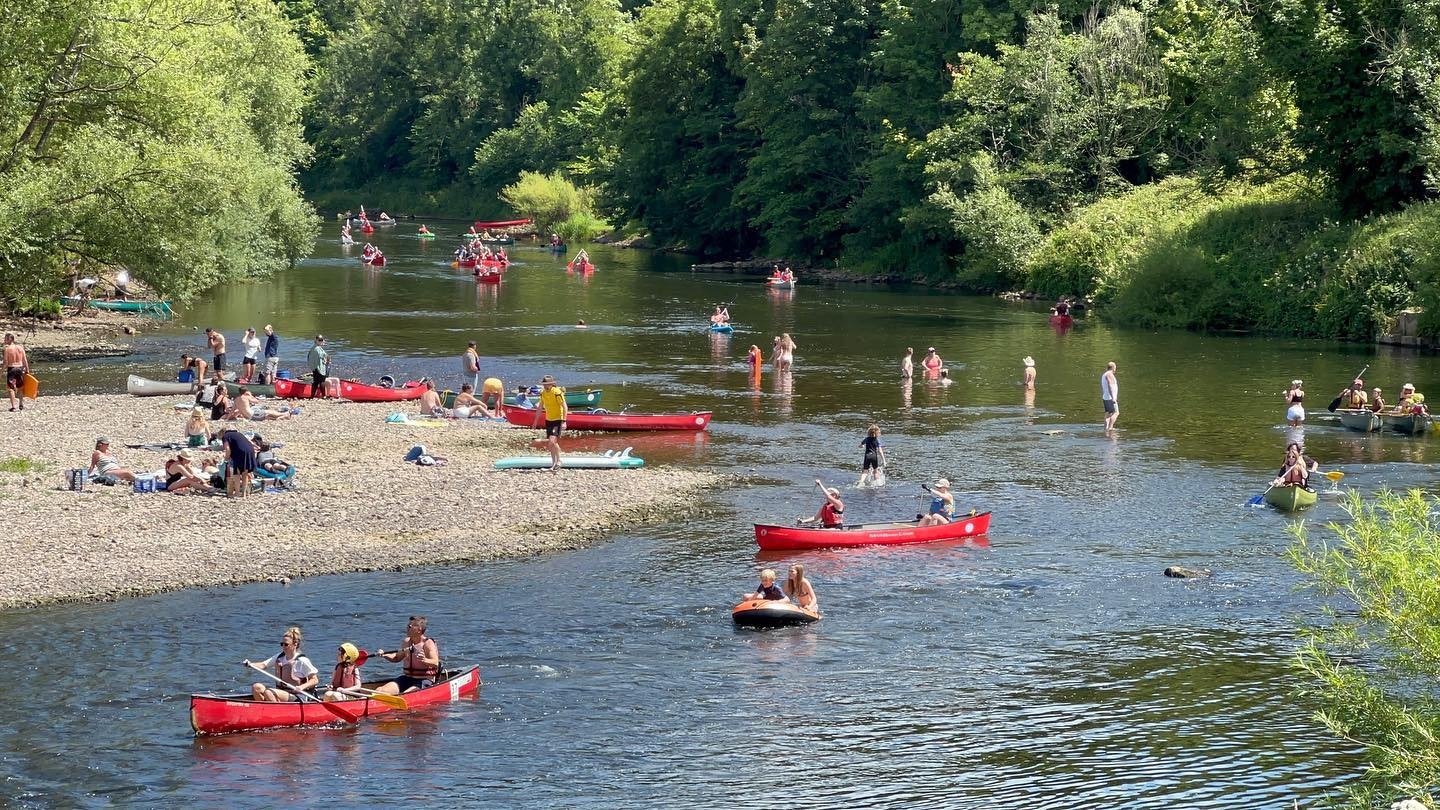ANGLERS from all corners of the country are calling on authorities to address the growing problems being caused on many of our rivers by the huge influx of recreational water users in post-lockdown Britain.
While our waterways have always been popular with boaters and canoeists, over the past two years they’ve faced an onslaught from a new wave of kayakers, rafters and wild swimmers with seemingly scant regard for the law or the fragile riverine ecosystems they’re using as their playgrounds.
Although many rivers are bearing the brunt of the problem, nowhere has it been more acute than on the River Wye, where the rise in bankside footfall, litter and disturbances to wildlife habitats has left local angling interests exasperated.
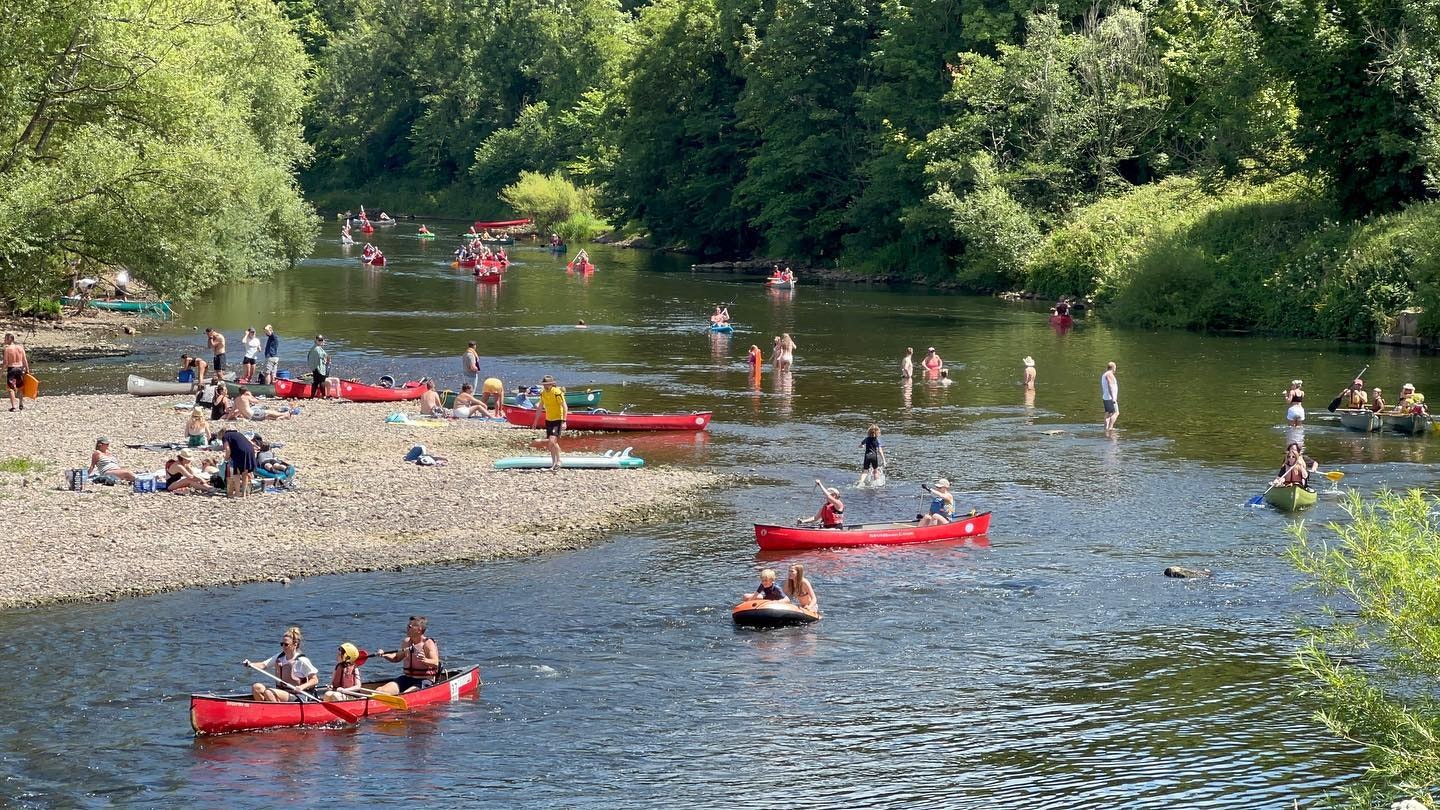
Adam Fisher, who runs many day-ticket stretches and a guiding service through his Angling Dreams business, said: “A couple of weeks ago, with the river on its bones and a heatwave forecast, we stopped taking fishing bookings until further notice.
“Meanwhile, the canoe companies were still piling people onto the river, and who can stop them? Nobody – it’s a free-for-all. There’s no accountability, no regulation and no licensing. This madness has to stop.
“The river is so low that every person who canoes it and gets out of their craft onto shallows or beach areas – fragile ecological systems vital to the fish and other aquatic life – is committing an offence. These are not my words, but those of the Environment Agency in its ‘Code of Conduct’, which seems worthless.
“This should be being shouted from the rooftops, but the canoe industry’s silence is deafening. Instead, you’ve got companies putting up social media posts saying ‘fab river levels today’, while showing films and pictures of people landing and launching from gravel sites.”
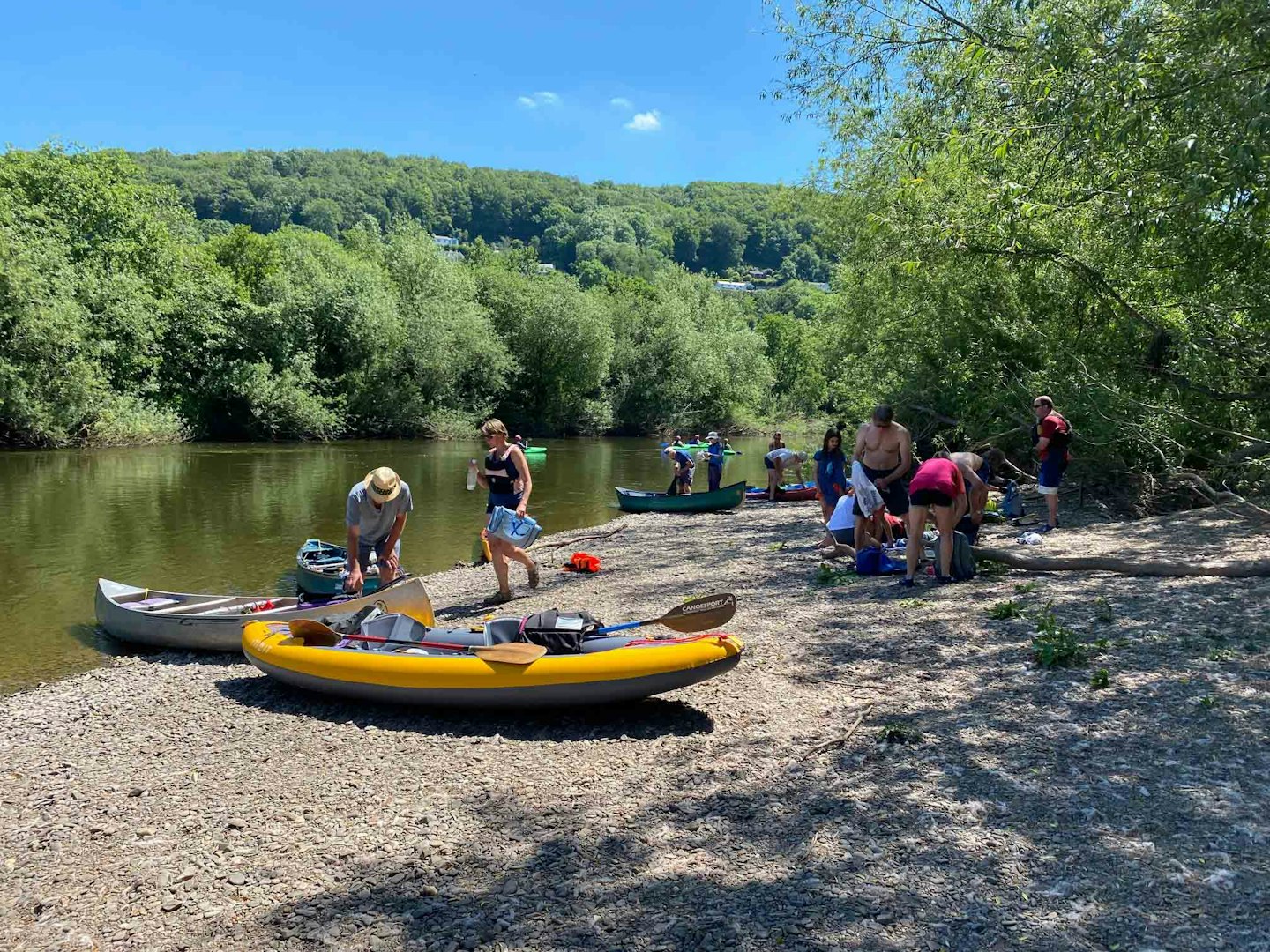
Angling Times’ Martin Bowler fishes the Wye regularly, and was even more scathing. He said: “This summer it’s going to be Armageddon on many rivers. They’re painfully low, there’s little rain forecast, and there are more river users than ever. Water levels on the Wye are such that canoeists are carrying their craft over shallow areas every few hundred yards in some areas, trampling over the gravels. They’re supposed to use dedicated points of access, but they don’t.
“Now the schools have broken up, it’s going to get even worse. People will be stopping to picnic, have BBQs, leave litter and go to the toilet. We’re forever working around all the other water users, but it’s high-time these groups were licensed and became as accountable as anglers.
“We pay to use our rivers, and I can’t see why the companies that hire out the boats and kayaks don’t do likewise. Why isn’t there some sort of Waterways Code of Conduct that all water users should follow? If I only ever fished the Wye, I’d refuse to buy a rod licence. That’s how strongly I feel.”
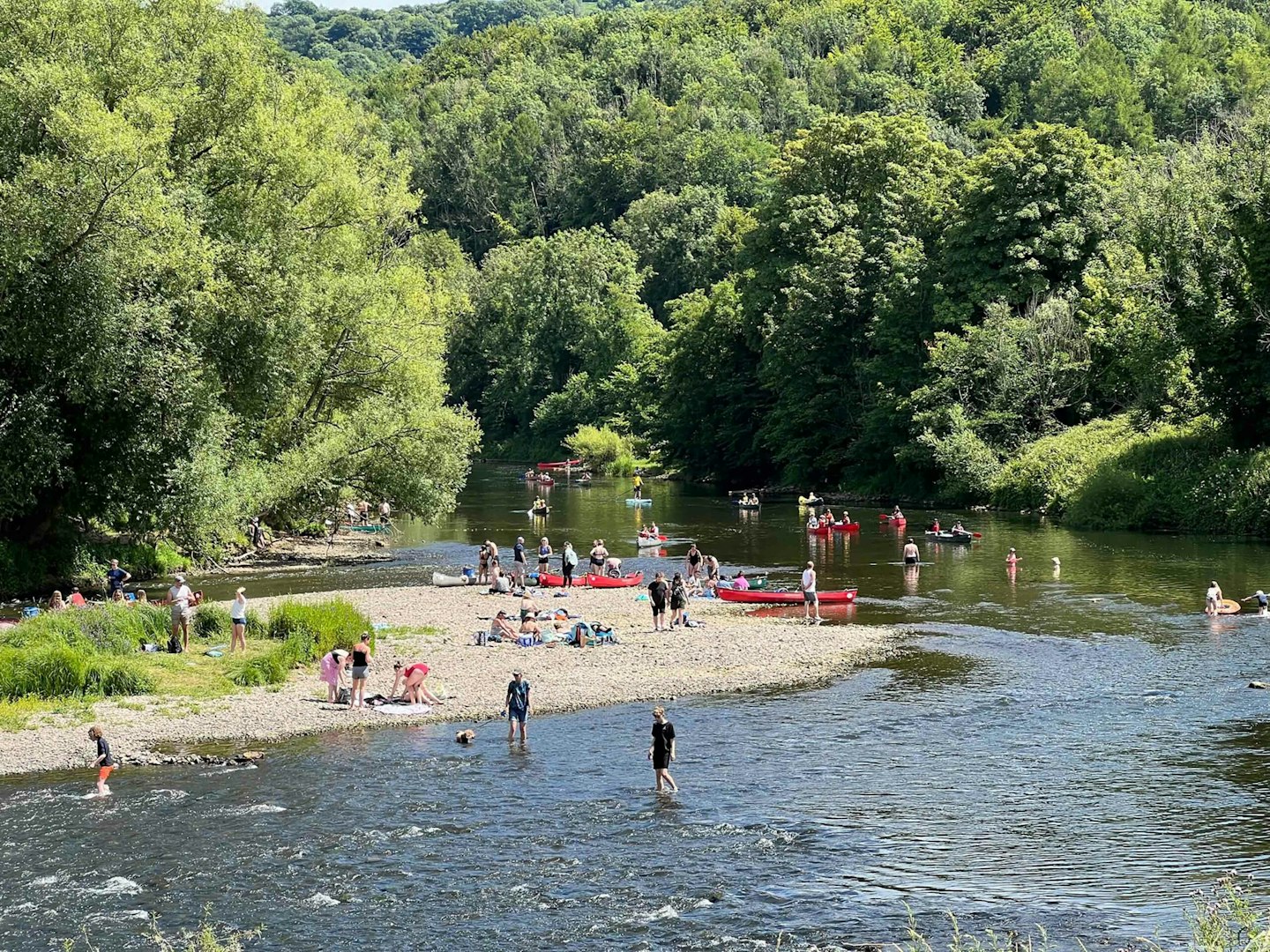
Apart from the huge ecological damage being caused by inconsiderate water users, it’s their disregard for the law that incenses many. This states that you can’t access a river that’s on someone’s land without permission, and if you do, its trespass, as it is if you get out of the boat at non-designated access points. But trespassing comes under civil law, so it’s down to the landowner to prosecute. Most landowners aren’t willing to take the financial hit, so swimmers and kayakers get away with it.
John Levell, riverkeeper at the Somerley Estate on the Hampshire Avon, which offers both game and coarse fishing, believes the problem can only be tackled by a combination of education and legislation.
“We’ve got signs plastered along the river informing water users that they can’t travel down these stretches, yet we still get idiots intent on doing what they want.
“The best way to tackle this is through education, yet the EA is conspicuous by its absence – it’s scared to tackle the public. Hopefully, land management and river ecology will start to be taught in schools, because what’s going on now is nothing short of trespass, which should be upgraded to a criminal offence, as in many other European countries. They don’t have these problems, because people know the law. Over here, people think they have access by default. It’s a problem that’s endemic in society, and one which the authorities clearly don’t have the bottle to tackle.”
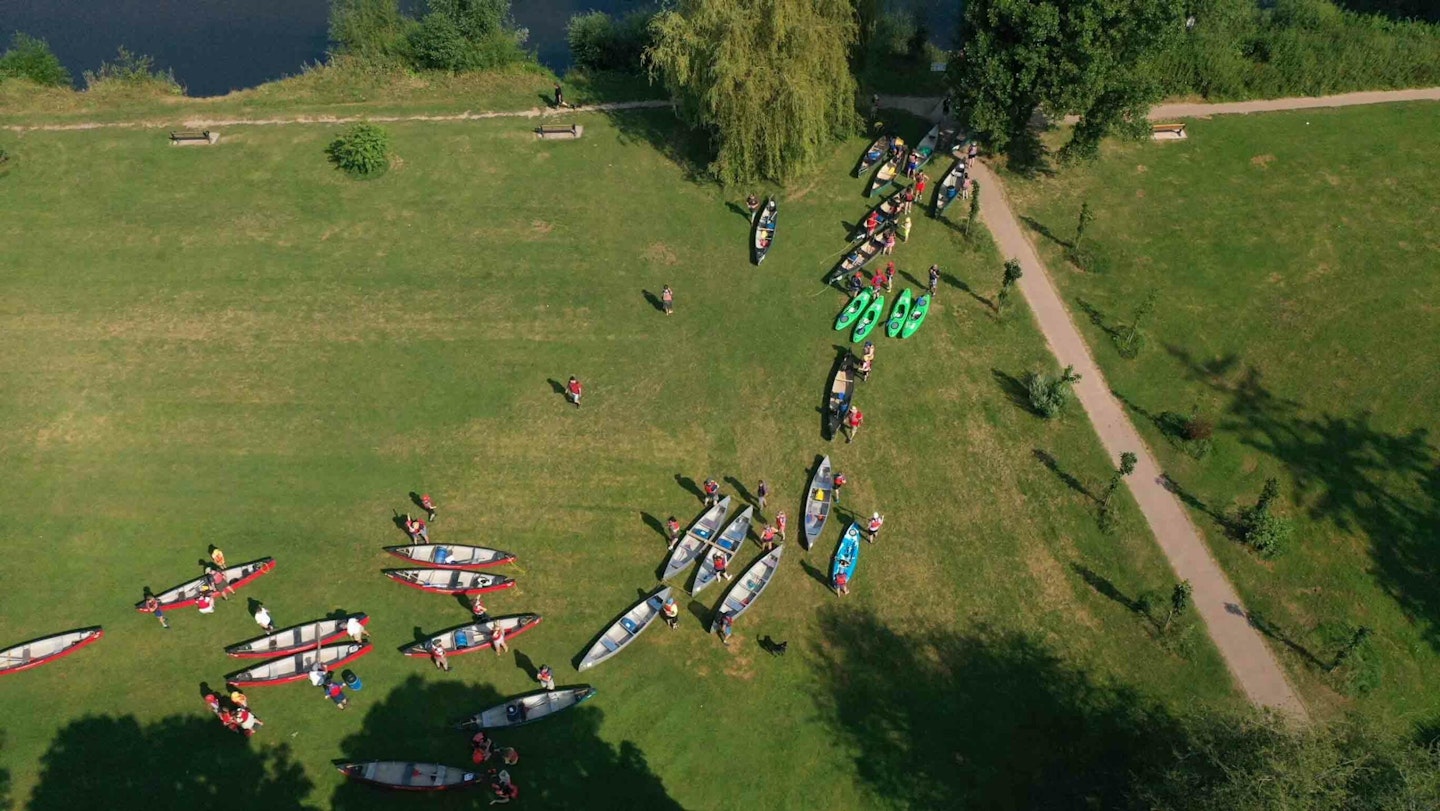
As Stuart Singleton-White, head of campaigns at the Angling Trust revealed, British Canoeing and similar bodies have aligned themselves with a “right to roam” campaign headed up by radical groups who want broader land reform. But with no such reforms in the pipeline, its actions could be breaking the law on two counts.
He said: “There’s no general public right to navigation on English and Welsh rivers, only on rivers where navigation rights have been established through Acts of Parliament or other arrangements. So canoeists, wild swimmers and the like may be breaking two laws through their activities: the Wildlife and Countryside Act 1980, if through their activities they are disturbing protected species; and the Salmon and Fisheries Act 1975, if they are disturbing fish in certain areas (such as around weirs) or damaging spawning grounds.”
“The Angling Trust supports the idea of sharing our waters within the law, and the best way to do that is through voluntary agreements and measures between different users, taking into account the needs of the users and, importantly, the protection of the environment. Many of our rivers are fragile ecosystems, some of global importance.”
And, just like John Levell, Stuart believes education is key to tackling the problem.
“While the EA and Natural England are quick to give advice to anglers and even introduce restrictions when we’re faced with the sort of water temperatures and low flows we’re currently facing, they seem reluctant to do the same for canoeists and swimmers. We want to see a more proactive approach based on good information and education.”
THE EA’S OWN ‘GOOD PRACTICE GUIDELINES’ FOR CANOEISTS
“Coarse fish spawn between April and July, so unnecessary disturbance of gravels should be avoided at these times… trampling and launching canoes on gravels used by salmon may damage their eggs and young fry. A public right of navigation does not give a right of access to the riverbank and other than at accepted public sites, you must get permission from the landowner before launching and landing canoes. Permission is also needed to camp or picnic on the banks or neighbouring fields. You should be aware that ignoring this advice could result in a criminal offence being committed, and you may be subject to enforcement action.”
